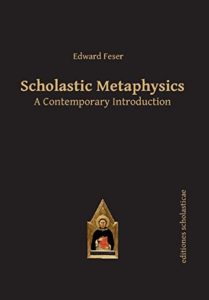


One might imagine from the book’s title that it is an extended treatment of Thomas’s quinque viae, and of course Feser identifies himself primarily as a Thomist. And so he concerns himself only with the God common to the intellectual traditions of all the great theistic creeds: the transcendent and infinite wellspring of all being, unique, eternal, simple, admitting of no division within himself between essence and existence, the absolute actuality upon which all finite and conditioned things depend, and therefore the only possible “sufficient reason” for the existence of anything at all. Feser clearly grasps that, even if one could prove that such a being exists, this would bring us no nearer to an understanding of the true source of all reality (which for monotheists, presumably, is what the word “God” ideally refers to), but would merely provide us with one more entity whose existence must be accounted for. It is also a virtue on Feser’s part that the only God he cares to argue for is the God of “classical theism.” He does not waste any attention on debates (of the kind all too depressingly common in Anglophone philosophy of religion) over the possible reality of a single “supreme being” who exists alongside other, lesser beings, on the same ontological plane (so to speak), and set off from them only by virtue of his “maximal greatness,” or some other property that makes him far larger and far older than all other things. In it, Feser has undertaken to explain and defend several of the most demanding traditional arguments for the reality of God, as thoroughly as possible, in a way that communicates their internal coherence to readers who may have no special formal training in philosophy, but who are willing to follow an argument to its end. But this present volume, Five Proofs of the Existence of God, is no less substantial an achievement. Perhaps the best example of this gift in action hitherto was his 2006 volume Philosophy of Mind: A Beginner’s Guide (at least, speaking for myself, I have both recommended it to general readers and used it with undergraduates, in either case with very happy results).

As scholarly virtues go, this is one of the rarer ones-in part because it takes considerable patience both to acquire and to practice, and in part because it requires a genuine desire to entrust difficult ideas to those from whom they are typically withheld. Edward Feser has a definite gift for making fairly abstruse philosophical material accessible to readers from outside the academic world, without compromising the rigor of the arguments or omitting challenging details.


 0 kommentar(er)
0 kommentar(er)
